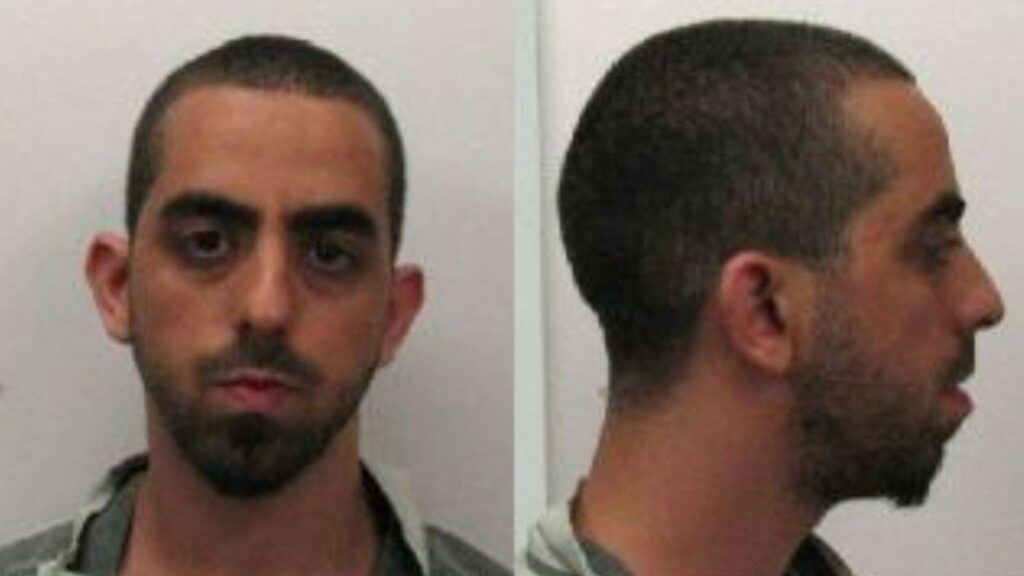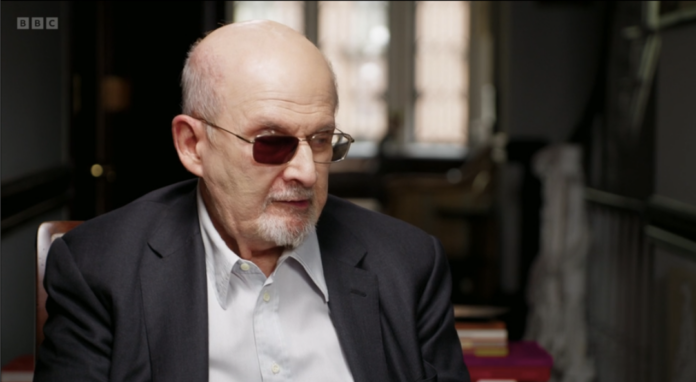The blasphemous author Salman Rushdie has told the BBC that losing his eye “upsets him every day” following the attack two years ago in which he was stabbed on stage.
Rushdie said his eye was left hanging down his face “like a soft-boiled egg.” “I remember thinking I was dying,” he said. “Fortunately, I was wrong.”
The attack damaged Rusdie’s liver and hands, and severed nerves in his right eye.
His eye looked “very distended, swollen,” he said. “It was kind of hanging out of my face, sitting on my cheek, I’ve said like a soft-boiled egg. And blind.”
The Satanic Verses author added that he finds he has to take greater care when walking down stairs, or crossing a road, or even when pouring water into a glass.
But he considers himself lucky to have avoided brain damage. “It meant I was actually still able to be myself.”
Hadi Matar, a 26-year-old New Jersey resident, has been charged with stabbing Rushdie. Mr Matar has pleaded not guilty and is being held without bail.
Subscribe to our newsletter and stay updated on the latest news and updates from around the Muslim world!
Upon publication of the Satanic Verses in 1988, Muslims worldwide were outraged by a character called “Mahound,” who appears in dream sequences in the novel and was alleged to be a thinly and perversely disguised representation of the Prophet Muhammad.

The name Mahound was used in medieval Christian plays to represent satanic figures, and some Muslims concluded that Rushdie was implying that Muhammad (pbuh) was a false prophet.
In the book, Rushdie also gave the names of the Prophet’s wives to twelve prostitutes in a brothel. And he invoked a discredited and false tradition – the so-called satanic verses – in which Satan inspired Muhammad (pbuh) to compromise with the people of Mecca and to allow them to continue to worship other deities in an attempt to lure them to Islam.
Pakistan banned the book in November 1988. In February 1989, a 10,000-strong protest against Rushdie and the book took place in Islamabad, Pakistan. Six protesters were killed in an attack on the American Cultural Center, and an American Express office was ransacked.
As the controversy spread, the importing of the book was banned in India and it was burned in demonstrations in the United Kingdom.
In mid-February 1989, Ayatollah Ruhollah Khomeini, then Supreme Leader of Iran, issued a fatwa calling for the death of Rushdie and his publishers, and called for Muslims to point him out to those who can kill him if they cannot themselves.
In response, the British Conservative government under Margaret Thatcher gave Rushdie round-the-clock police protection. With police protection Rushdie escaped direct physical harm, but others associated with his book weren’t so lucky.
Hitoshi Igarashi, his Japanese translator, was found by a cleaning lady, stabbed to death in July 1991 on the college campus where he taught near Tokyo. Ten days prior to Igarashi’s killing Rushdie’s Italian translator Ettore Capriolo was seriously injured by an attacker at his home in Milan by being stabbed multiple times.
William Nygaard, the Norwegian publisher of The Satanic Verses, was critically injured by being shot three times in the back by an assailant on October 11, 1993 in Oslo. Nygaard survived but spent months in hospital recovering.
The book’s Turkish translator Aziz Nesin was the intended target of a mob of arsonists who set fire to the Madimak Hotel after Friday prayers on 2 July 1993 in Sivas, Turkey, killing 37 people. Nesin escaped death when the mob failed to recognise him early in the attack.
Finally, in 2006, the Iranian government withdrew its support for the carrying out of the death sentence and Rushdie gradually returned to public life.



















